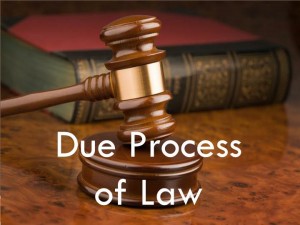Timely Objection: Preserving The Right To Withdraw A Guilty Plea
People v Williams
2016 NY Slip Op 02551
New York Court of Appeals
Decided on: April 5, 2016
Issue: Whether defendant had practical ability to challenge the validity of his guilty plea prior to the imposition of sentence on the theory that the plea was induced by the promise of an unlawful sentence.
Holding:?The Court of Appeals held that the defendant had a reasonable opportunity to attack the legality of his guilty plea in the court of first instance on the same grounds now advanced on this appeal. Because defendant did not take advantage of that opportunity, he failed to preserve his current claim for appellate review.
The defense had multiple opportunities to preserve defendant’s current challenge to his plea and seek clarification of the matter, as such opportunities arose from: the courts comment at the plea proceeding about its uncertainty of the legality of the promised sentencing options; the court’s statements at the plea proceeding about the determinative nature of defendant’s predicate felony offender status; the numerous adjournments, the Outley hearing and the post-hearing court appearance that transpired between the plea and sentencing proceedings, which could have allowed counsel and defendant to inquire further into the legality of the promised sentencing options and defendant’s understanding of the plea; and the court’s comments at sentencing, which offered an opening for counsel to confirm the legality of the court’s sentencing options and its effect on the validity of the plea. By failing to seize upon these opportunities to object or seek additional pertinent information, defense counsel failed to preserve defendant’s claim for appellate review, Conceicao, 26 NY3d at 381; Crowder, 24 NY3d at 1136-1137; People v Murray, 15 NY3d 725, 727 [2010].
The Court of Appeals held that when a defendant pleads guilty to a crime, he or she generally must prove to withdraw the plea or otherwise object to its entry prior to the imposition of sentence to preserve a challenge to the validity of the plea for appellate review.
Facts: Defendant Christian Williams entered into a negotiated plea bargain with the People. Defense counsel announced that the People had offered a recommended sentence of three years in prison in exchange for defendant’s guilty plea to criminal sale of a controlled substance in the third degree. In the course of the ensuing plea colloquy, the court told defendant about the sentence to be imposed and informed defendant that, to receive a three-year prison term, he had to meet certain conditions during the period of his release prior to sentencing and refrain from committing new crimes and return to court for sentencing.
Defendant responded that he understood this explanation of the conditions of the plea and the consequences of failing to fulfill them. The court proceeded to arraign defendant on a predicate felony statement, which was filed by the People and alleged that he had a predicate felony conviction for attempted criminal possession of a weapon in the second degree. Defendant declined to challenge the validity of that predicate felony conviction, and he was adjudicated a second felony offender previously convicted of a violent felony.
Significantly, though, while a three-year prison term is within the lawful sentence range for a second felony drug offender convicted of a third-degree criminal sale of a controlled substance, Penal Law 70.70 [3] [b] [i], it was not a sentence lawfully available to defendant in light of his distinct predicate status. Rather, because defendant was a second felony drug offender previously convicted of a violent felony, he faced a statutory sentencing range of six to fifteen years in prison on his third-degree drug sale conviction, Penal Law 70.70 [4] [b] [i]. But, the Court was not informed of this issue and never indicated that it learned of the potential problem on its own.
 Subsequently, defendant was arrested on new charges and the court held a hearing pursuant to People v Outley, 80 NY2d 702 [1993] to determine whether defendant had violated the terms of his plea agreement. At the hearing, a police officer testified that he arrested defendant upon seeing him smoking marijuana in the lobby of a public house. At sentencing, the court summarized the conditions of the plea and reiterated prior finding that defendant had failed to abide by those conditions and sentenced defendant to six years, and also serve a two-year post-release supervision.
Subsequently, defendant was arrested on new charges and the court held a hearing pursuant to People v Outley, 80 NY2d 702 [1993] to determine whether defendant had violated the terms of his plea agreement. At the hearing, a police officer testified that he arrested defendant upon seeing him smoking marijuana in the lobby of a public house. At sentencing, the court summarized the conditions of the plea and reiterated prior finding that defendant had failed to abide by those conditions and sentenced defendant to six years, and also serve a two-year post-release supervision.
Defendant appealed and a divided panel reversed the judgment, on the law, vacated defendant’s guilty plea and remanded the matter to Supreme Court for further proceedings, People v Williams, 123 AD3d 240, 241-247 [1st Dept 2014]. The Court conclude that defendant’s claim fell within the exception to the preservation rule because Supreme Courts alleged error in promising defendant an unlawful three-year prison term in exchange his guilty plea constituted a due process violation which presented a question of law for appellate review despite the absence of proper preservation, citing People v Louree, 8 NY3d 541-545-546 [2007]. On the merits, the court ruled that the lower courts error affected the voluntariness of defendant’s plea, not simply his sentencing expectations, and that therefore vacatur of the plea was the only proper remedy. A dissent from the Appellate Division granted leave to appeal where the Court of Appeals held that the defense had multiple opportunities to preserve defendant’s current challenge to his plea and seek clarification of the matter. The Court reversed the order and the case was remitted to the Appellate Division, First Department.
Legal Analysis: The Court of Appeals held that when a defendant pleads guilty to a crime, he or she generally must prove to withdraw the plea or otherwise object to its entry prior to the imposition of sentence to preserve a challenge to the validity of the plea for appellate review, People v Toxey, 86 NY2d 725, 726 [1995]; People v Claudio, 64 NY2d 858, 858-859 [1985]. In a line of cases beginning with People v Lopez, 71 NY2d 662 [1988], however, the Court of Appeals clarified the existence of a narrow exception to the preservation requirement in rare cases where the defendant lacks a reasonable opportunity to object to a fundamental defect in the plea which is clear on the face of the record and to which the courts attention should have been instantly drawn, such that the salutary purpose of the preservation rule is not jeopardized. ?Here, the court arraigned defendant on a predicate felony statement that was filed by the People and alleged that he had a predicate felony conviction for attempted criminal possession of a weapon in the second degree. Defendant declined to challenge the validity of that predicate felony conviction, and he was adjudicated a second felony offender previously convicted of a violent felony.
Significantly, though, while a three-year prison term is within the lawful sentence range for a second felony drug offender convicted of a third-degree criminal sale of a controlled substance, Penal Law 70.70 [3] [b] [i], it was not a sentence lawfully available to defendant in light of his distinct predicate status. Rather, because defendant was a second felony drug offender previously convicted of a violent felony, he faced a statutory sentencing range of six to fifteen years in prison on his third-degree drug sale conviction, Penal Law 70.70 [4] [b] [i]. One of the Appellate Division dissenters granted the People leave to appeal, and the Court of Appeals reversed on preservation grounds.
Preservation–or, more precisely, the lack of preservation, frequently accounts for the disposition of criminal cases in this Court, People v Hawkins, 11 NY3d 484, 491 [2008], and the Court of Appeals held that they enforce the preservation doctrine with equal regularity in the trial and the plea contexts, remaining mindful that the necessity of preservation is the rule rather than the exception, People v Leach, NY3d, 2016 NY Slip Op 01253, * 1-* 2 [2016]; People v Crowder, [*6] 24 NY3d 1134, 1136-1137 [2015]; People v Clemons, 49 NY2d 79, 796 [1980]; People v Warren, 47 NY2d 740, 741 [1979]; People v Delancy, 48 NY2d 972, 973-974 [1979] ; People v Adams, 46 NY2d 1047, 1047-1048 [1979].
The Court of Appeals held that, in order to preserve a challenge to the factual sufficiency of a plea allocution there must have been a motion to withdraw the plea under CPL 220.60 (3) Lopez, 71 NY2d at 665; see Claudio, 64 NY2d at 858-859 and under certain circumstances, this preservation requirement extends to challenges to the voluntariness of a guilty plea, People v Peque, 22 NY3d 168, 182 [2013]; see People v Tyrell, 22 NY3d 359, 363-364 [2013]; People v Murray, 15 NY3d 725, 726 [2010]; People v Toxey, 86 NY2d 725, 726 [1995]; Delancy, 48 NY2d at 973-974. On the other hand, in People v Lopez, 71 NY2d 662, the Court concluded that, where a leading defendant’s recitation of the facts of his or her offense clearly casts doubt on his or her guilt and the court makes no further inquiry, the defendant does not have to be preserve a claim of fatal error in the allocution because, as noted above, the courts attention should have been instantly drawn to the problem, and the salutary purpose of the preservation rule is arguably not jeopardized. In People v Louree, 8 NY3d 541 [2007], the Court adopted a variant of the Lopez exception applicable to defendant’s claim that his plea was involuntary under People v Catu 4 NY3d 242 [2005] based on the particular circumstances of defendant’s plea and sentencing proceedings.
The Court of Appeals has held that in Louree, they excused a defendant’s failure to preserve his Catu claim not because the claim implicated due process, but because the defendant had no practical ability to assert that the plea was invalid prior to the imposition of his sentence. Specifically, while the Court has stated, where a trial judge does not fulfill the obligation to advise a defendant of postrelease supervision during the plea allocution, the defendant may challenge the plea as not knowing, voluntary and intelligent on direct appeal, notwithstanding the absence of a post allocution motion, the Court explained that they were applying an exception to the preservation rule because they could not shut their eyes to the actual or?practical unavailability of either a motion to withdraw the plea, of a CPL 440.10 motion, noting that, a defendant can hardly be expected to move to withdraw his plea on a ground of which he had no knowledge.
*Hence the Courts decision to relieve the defendant of any preservation obligation in Louree stemmed in significant part from the defendant’s inability to object to the legality of his plea prior to the final imposition of sentence, and not just from the nature of his due process claim. As a result, Louree does not support the Appellate Division’s apparent conclusion that, because defendant here attacked the voluntariness of his plea on due process grounds, his claim was categorically exempt from the preservation rule.*
Even where the defendant challenges a plea on voluntariness and due process grounds, he or she must preserve that challenge via timely objection depending on the circumstances of the case, and the Court of Appeals held that they have clarified that, taken together, Lopez and Louree establish that where a defendant has no practical ability to object to an error in a plea allocution which is clear from the face of the record, preservation is not required. In that very decision, the Court also concluded that a defendant could have preserved, and failed to preserve, his contention that the trial court’s failure to apprise him that deportation was a potential consequence of his plea rendered the plea involuntary.?Thus, as Louree indicates and Peque crystallizes, if a defect in a plea allocution is clear on the face of the record and implicates due process, the defendant nonetheless must preserve his or her claim that the defect made the plea involuntary unless the defendant has no practical ability to do so.
Moreover, after the Appellate Division decided this case, the Court emphasized that a defendant must object to the courts failure to apprise him or her of the consequences of a guilty plea if he or she has the opportunity to lodge such an objection, People v Crowder, 24 NY3d 1134, 1136-1137 [2014]; People v Conceicao, 26 NY3d 375, 381 [2015].
Defendant contends that Supreme Court violated due process and improperly induced his guilty plea because it failed to tell him at the plea proceeding that it could not legally order a three-year prison term, which the court promised him in exchange for his guilty plea and his compliance with the plea conditions, upon defendant’s conviction for third-degree drug sale in light of defendant’s status as a second felony drug offender with a prior violent felony conviction. By defendant’s reckoning, since the court never announced that the promised sentence was illegal and his lawyer did not display any recognition of the unlawfulness of the proposed sentence on the record, neither defendant nor counsel had any practical ability to challenge the voluntariness of the plea on grounds of which they were unaware.
However, even assuming that the error alleged by defendant impacts the voluntariness of the plea as opposed to his sentencing expectations, an issue wholy contested by the parties and unaddressed by the Court of Appeals decision, defendant could have raised his current claim prior to the final imposition of sentence in Supreme Court, and therefore, he was obligated to, and failed to, preserve his claim, and his failure to object to the plea in the court of first instance precludes the Court’s review of his present contention. Accordingly, the order of the Appellate Division should be reversed and the case remitted to that court for consideration of the facts and issues raised but not determined on?the appeal to that court.
